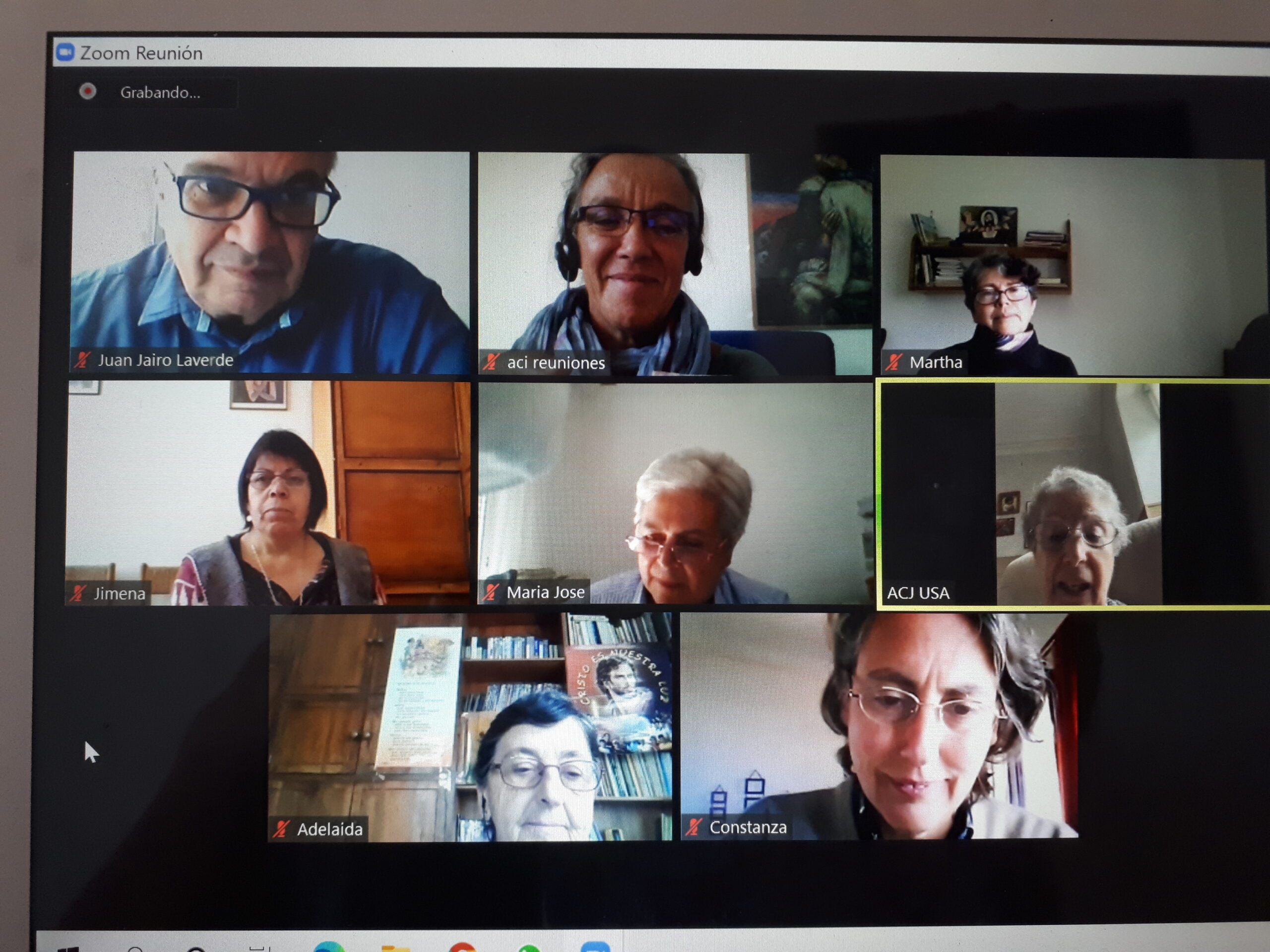
27 Sep WORLD DAY OF MIGRANTS AND REFUGEES, AN OPportunity
In the context of the World Day of the Migrants and Refugees this year, the coordinators of the Human Migration Project have taken a further step in our mutual collaboration.
In addition to accompanying and disseminating all the vides that have been published on this page about the pairs of verbs proposed by the Pope in his message this year “Like Jesus Christ, forced to flee”; we have met by continents, those of America, those of Asia and those of Africa-Europe, in order to share about the situation of the migrants in our countries and to exchange ideas and initiatives that can help us to reach more people in migration or in a more comprehensive and constant way.
Some points that we highlight from these three intensive encounters:
- The importance of networking for which, for example, the Vice-province of Chile has been conscientiously preparing, carrying out a cycle of interviews with persons and organizations involved in Human Migration so that from there the Human Migration Team can discern where and with whom to become involved.
- In the case of human trafficking, to understand that between “sending countries” and “receiving countries” coordination is very necessary, as they are trying to do from Japan within the network Talitha Kum with other Asian countries such as Timor; also we collaborate with Talitha Kum in Vietnam, the Philippines and Indonesia.
- The value of involving the ACI Family in this project. Those of the Province of Colombia-Panama and the Vice-Province of the Philippines shared the process of raising awareness and involvement of the laity.
- The need not to lose sight of the precarious work situation of migrants and displaced persons. In Ecuador they are involved by means of training, and in the Province of Argentina-Uruguay by supporting, for example, groups of immigrant women entrepreneurs.
- The importance for many people that we consider the principle of the “right not to migrate,” and involves us in the local promotion of the most disadvantaged persons, as was shared with us from India.
- The urgency of having a more public presence and joining those in the field of Human Rights who struggle for just laws in solidarity. There we receive a great witness from the Province of the United States, which is very involved in writing letters to congressional representatives and participating in protest movements against xenophobic changes that the current administration is imposing.
- How much we have to contribute in the educational sphere. Whether to those who live without rights or are called “illegals,” which is happening in Vietnam with many migrant children or former refugees from Cambodia; or those displaced by war who find themselves disorientated and very vulnerable, as those in the Region of Africa have informed us. With education, they will be more prepared to defend themselves against all types of abuse to which they are exposed.
- The profound gratitude to the elderly (and not so elderly) Sisters who from their physical inactivity develop a network of prayer for our brothers and sisters in migration as well as for all the Sisters who are involved in it. The provinces of Japan, of Spain and the presence in Indonesia reminded us of this aspect of our project.
- The appreciation that we ought to give to each gesture or act that we carry out, without letting ourselves by overwhelmed by the news and the disasters. If we have improved the life and dignity of one person, it is in their shoes that we must place ourselves in order to thank God for the opportunity, to remain alert in order to be aware of the other person that God is placing before us. The welcoming into our communities of persons and families of refugees carried out in the Provinces of Italy, Atlantic-Europe and Spain show us that everything is summed up in “do whatever we can and all that we can”.
Moreover, according to our possibilities and with the desire of “knowing in order to understand” as the Pope invites us to do, we have participated virtually in two events organized around that day:
- “Like Jesus Christ, forced to flee” organized in a network by UISG, JRS and the Section for Migrants and Refugees in which, together with Cardinal Czerny SJ and others, S. Inés Oleaga gave a testimony about her work with displaced persons in DR Congo.
- “Un diálogo sobre la Hospitalidad y los desplazados forzados” organized by the Institute on Migrations of the University of Comillas and the network Migrants with Rights.
From here we thank the entire Institute, the friends and collaborators for the impetus that we are giving to the project and the encouragement to keep always very alive the desire to “take it a step further.”
M. José, Constanza and Inés
Spearheading Team

